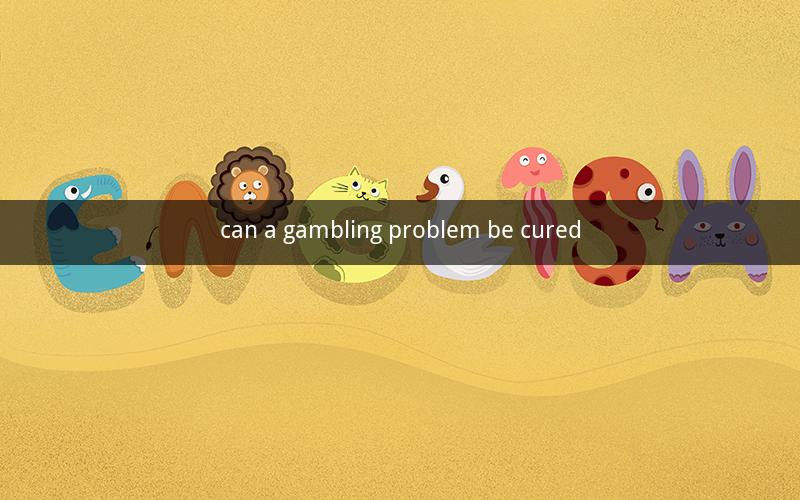
Contents
1. Understanding Gambling Addiction
2. The Nature of a Gambling Problem
3. Signs and Symptoms of a Gambling Addiction
4. Treatment Options for Gambling Addiction
5. Therapy and Counseling for Gambling Addiction
6. Medication and Medical Treatments
7. Support Groups and Community Resources
8. The Role of Family and Friends in Recovery
9. The Importance of Relapse Prevention
10. Long-Term Recovery and Sobriety
1. Understanding Gambling Addiction
Gambling addiction, also known as compulsive gambling, is a complex behavioral disorder characterized by the inability to control or stop gambling despite harmful consequences. It is often considered an addiction due to the similarities in brain chemistry and psychological effects as seen in substance abuse. Understanding the nature of this addiction is crucial in addressing the question of whether a gambling problem can be cured.
2. The Nature of a Gambling Problem
A gambling problem can manifest in various forms, from mild to severe. It often starts as a hobby or a way to relax, but for some individuals, it evolves into an all-consuming obsession. The nature of a gambling problem is such that it can affect every aspect of a person's life, including their finances, relationships, and mental health.
3. Signs and Symptoms of a Gambling Addiction
Identifying the signs and symptoms of a gambling addiction is essential for early intervention. Common indicators include:
- Inability to control gambling behavior
- Preoccupation with gambling
- Lying to hide gambling activities
- Increasing stakes to sustain the thrill
- Financial difficulties due to gambling
- Relationship problems
- Legal issues
- Withdrawal symptoms when unable to gamble
4. Treatment Options for Gambling Addiction
Treatment for gambling addiction is multifaceted and can include various approaches. These may include:
- Cognitive Behavioral Therapy (CBT)
- Dialectical Behavioral Therapy (DBT)
- Family Therapy
- Support Groups
- Financial Counseling
- Medication
5. Therapy and Counseling for Gambling Addiction
Therapy and counseling play a pivotal role in treating gambling addiction. Therapists can help individuals understand the underlying causes of their addiction, develop coping strategies, and rebuild their lives. Common therapeutic approaches include CBT, which focuses on identifying and changing negative thought patterns and behaviors.
6. Medication and Medical Treatments
In some cases, medication may be used to treat gambling addiction. Antidepressants, mood stabilizers, and anti-anxiety medications can help manage symptoms and reduce the urge to gamble. However, medication should always be prescribed by a healthcare professional and monitored closely.
7. Support Groups and Community Resources
Support groups, such as Gamblers Anonymous, provide a sense of community and understanding for individuals struggling with gambling addiction. Community resources can also offer additional support, including counseling, financial assistance, and educational programs.
8. The Role of Family and Friends in Recovery
Family and friends can play a crucial role in the recovery process. They can offer emotional support, encourage participation in treatment programs, and help create a supportive environment. It is important for loved ones to understand the nature of gambling addiction and learn how to communicate effectively with the individual in recovery.
9. The Importance of Relapse Prevention
Relapse is a common challenge in the recovery process. It is important for individuals to develop relapse prevention strategies and maintain a strong support system. Relapse prevention may involve identifying triggers, developing coping mechanisms, and seeking support when needed.
10. Long-Term Recovery and Sobriety
Long-term recovery from gambling addiction requires ongoing commitment and dedication. It is important to maintain a healthy lifestyle, continue with therapy and support groups, and stay connected with a supportive network. Sobriety is a journey, and it is essential to celebrate successes and learn from setbacks.
---
Questions and Answers
1. Q: Can a gambling problem be cured?
A: While there is no one-size-fits-all solution, many individuals with a gambling problem can achieve long-term recovery with appropriate treatment and support.
2. Q: How long does it take to recover from a gambling addiction?
A: Recovery can vary from person to person, but it often requires a significant amount of time, effort, and patience.
3. Q: Can medication cure a gambling addiction?
A: Medication can help manage symptoms and reduce the urge to gamble, but it is not a standalone cure for gambling addiction.
4. Q: Are support groups effective for gambling addiction?
A: Support groups can be highly effective for individuals struggling with gambling addiction, providing a sense of community and shared experiences.
5. Q: Can therapy alone cure a gambling addiction?
A: While therapy can be a crucial component of treatment, it is often most effective when combined with other approaches, such as support groups and medication.
6. Q: What causes a gambling addiction?
A: Gambling addiction can be influenced by a combination of factors, including genetics, environmental factors, and personal vulnerabilities.
7. Q: Can a person with a gambling addiction be cured without seeking professional help?
A: While some individuals may find success in self-help methods, seeking professional help is often the most effective approach to treating gambling addiction.
8. Q: Can family members prevent a gambling addiction?
A: While family members can play a supportive role in preventing gambling addiction, it is ultimately up to the individual to make responsible choices.
9. Q: Is there a cure for gambling addiction in the works?
A: Research is ongoing, and new treatments and interventions are continually being developed to help individuals with gambling addiction.
10. Q: Can a person recover from a gambling addiction after a relapse?
A: Yes, relapse is a common challenge, but many individuals can recover from a relapse and continue on the path to long-term recovery with the right support and strategies.